In this beginners guide to raising chickens we are going to cover everything you need to know to raise chickens successfully for eggs. We will address raising meat birds in a future article.
Over the last ten years that I have raised chickens I have learned a lot! Chickens are a great way to re process left overs (but not chicken stuff, that’s just gross). When I clean out my gardens I throw the greens in for them. They also like grass clippings and weeds. Chickens are omnivores. They do eat meat, usually in the form of bugs. Though they do not eat box elder bugs, which is a bummer when the box elder bugs go into over production. You can also grow them food such as fodder.
Clipping Chicken Wings
When I first started raising chickens I thought you needed to clip their wings. Which you can do to keep them from flying over your fence but why bother? I did it one time and my neighbor, the country boy, laughed and laughed. He thought it was the funniest thing to see me chasing around my chickens to clip them.
The feathers will grow back so this must be done with some regularity.
Quick Links for Finding What Do You Need to Raise a Chicken?
Egg Cartons – just kidding, you need to start saving them now. And talk to your friends about saving theirs.
Let’s start at the beginning.
Beginners Guide to Raising Chickens – Picking Your New Chicks
Raising baby chicks is not for the faint of heart, especially if you order them through mail order. Living in the country, we can normally find baby chicks at the local country supply store. Sometimes they have baby ducks and geese as well. But for most people you will be ordering through mail order.
The first thing you will notice is there is a WIDE variety of types of chickens you can order. To add to the mystery, lots of weird names for the kind of chicks you can order.
Definitions:
Pullets – female chicks that will grow to become hens
Cockerels – male chicks that will grow to become roosters
Straight Run – a combination of both pullets and cockerels
Over the years chicken breeders have started using male and female to label their products but it never hurts to understand the terminology.
An order (often called a run) of just females/pullets will be more expensive than ordering a straight run. Though ordering an order of just pullets will mean that you have control on the number of females you get.
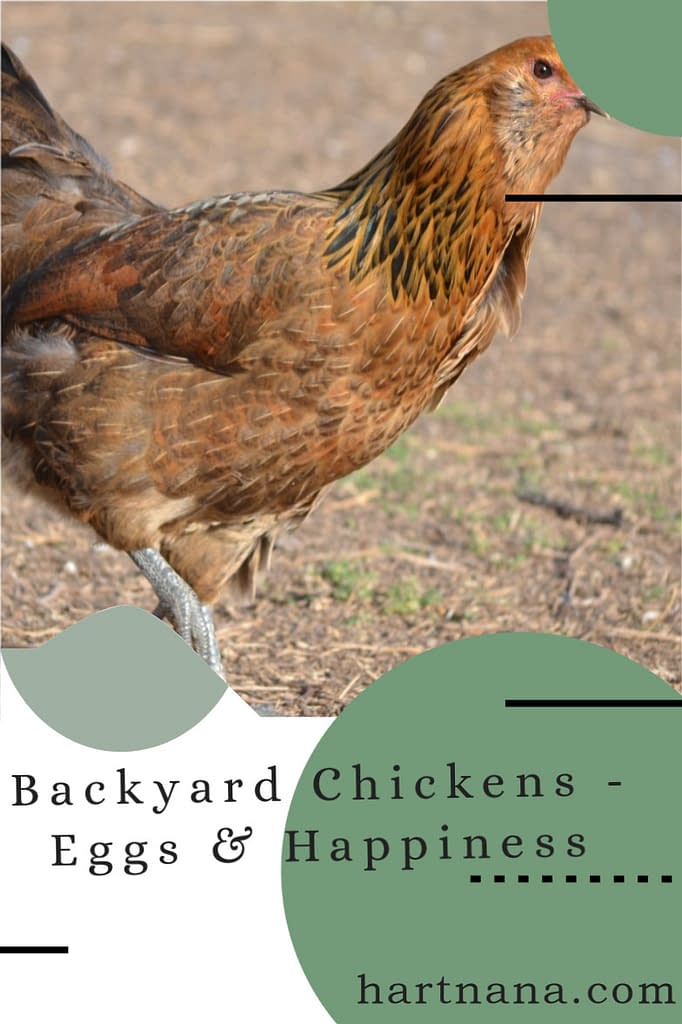
Ordering a straight run, especially if you are having them shipped, means more males. The big males help provide warmth to the group. Overall, more seem to survive the transit in my opinion. You will have to butcher or cull most of the males because really, you do not want to have more than one rooster per about ten hens.
Have you ever wondered how to tell male and female eggs apart? The pointy eggs are male eggs and the round eggs (like you get in the store) are female eggs. And no, Virginia, you don’t need a rooster to get eggs. I know you were wondering that, because before I ever had chickens I didn’t know.
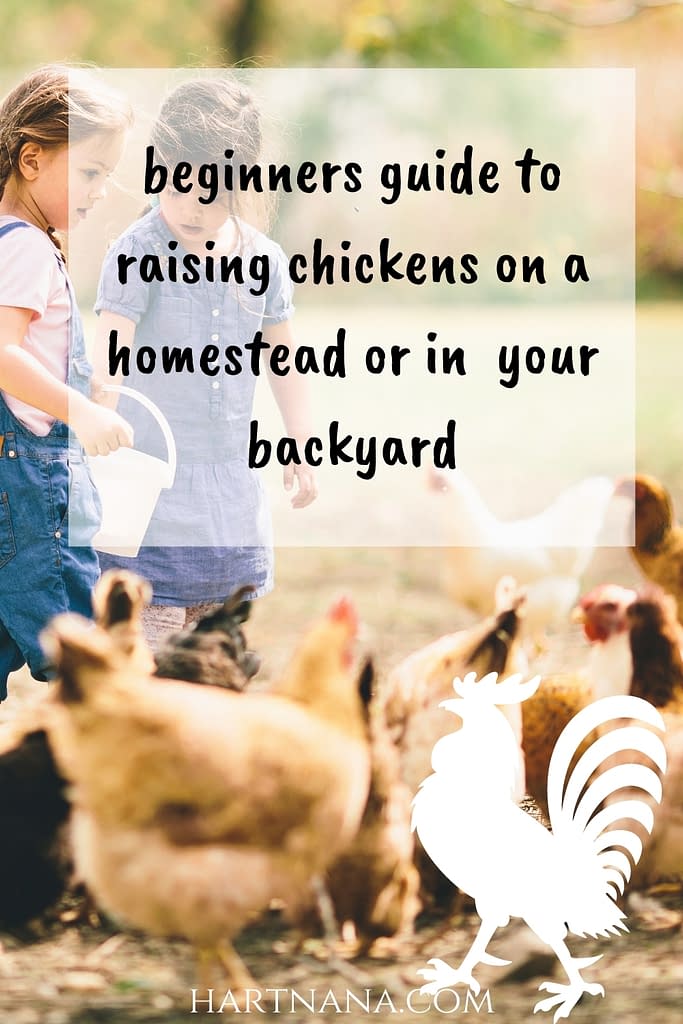
A word of warning – chicken sex can look rather violent, especially if you have too many roosters and not enough hens.
Quality Chicken Hatcheries:
Beginners guide to raising chickens – IMPORTANT TIP
Beginners Guide to Raising Chickens – Raising Baby Chickens
Before your baby chicks arrive, you will need to work on putting together a nursery. Depending on how many chicks you have ordered your nursery size will vary. With just a few chicks a cardboard box in a draft free warm area of your home will work. Many chickens will require a bigger space. I have seen people use everything from kiddie wading pools with cardboard “walls” to netting around the underside of a trampoline. Well, I do live in the country, we tend to make do.
Bedding For Baby Chicks
Be sure to add a source of bedding for your baby chicks. Wood shavings or straw work great. I would shy away from sawdust however as they might confuse it with food.
Aspen BeddingCheck PricePine beddingCheck Price
&
Keeping Your Baby Chicks Warm
What you need to keep in mind is the fact that, when it comes to raising baby chickens, they will grow pretty fast. For the first couple weeks you need to keep a good eye on them making sure they stay warm.
Clamp LightCheck PriceHeat Lamp 250-Watt Flood Light BulbCheck PriceClamp Lamp LightCheck Price
&
You will need a heat lamp or two depending on the size of the run you ordered. Be careful not to cook your babies either. Starting at around 95 degrees the first week, then dropping 5 degrees per week by raising the lamp until they get their feathers, at about six weeks of age.
Feeding Baby Chicks
When you first get your baby chicks you want to start them out with “chick starter”. Feed them this for at least six weeks. It has antibiotics in the feed that will help them grow and stay healthy. After that you will move to “grower mash”. Keep them on Grower Mash for the next six months until they are ready to start laying eggs. At which point you will transition to Layer Mash or pellets.
Chick FeederCheck PriceChick FeederCheck Price
&
Watering Your Baby Chicks
The first thing you need to do when you put your babies in the nursery is to dip their beaks in the water, so they know where to drink. A gentle dunk is all that is needed. I usually put marbles or rocks in a shallow container holding the water or around the outside of the watering trough. Baby chicks can drown. After a few days I take the rocks or marbles out.
Make sure you always have food and water available for them as they grow. And be mentally prepared, sometimes baby chicks simply don’t make it.
Little Giant 3 Gallon Poultry Waterer 7906Check PriceSummerHawk Ranch Gravity DrinkerCheck Price
&
Moving Your Chickens into a Coop
When I first started keeping chickens, I did a lot of research on chicken coops and how much space they needed and clipping wings, etc. There are a few things you need to think about before settling on your coop arrangement.
- Are you going to let your chicken’s free range around your yard?
- Do you have a garden that your chickens could destroy if they escape?
- Are predators or family pets and issue where you live?
To me, nothing says country like a few chickens roaming around the yard. However, chickens can wreak havoc on a garden. One year I had a bunch of pumpkins just getting ready to ripen and my chickens ate them! Grrrr.
Little Giant 3 Gallon Poultry Waterer 7906Check PriceSummerHawk Ranch Gravity DrinkerCheck PriceChicken Waterer – Horizontal Nipple Setup (3.5 gallon)Check Price5 Gallon Chicken Waterer – 4 Horizontal Side Mount Poultry Nipples – For Up To 30 Chickens – Coop FeederCheck PriceFarm Innovators Model HPF-100Check PriceMiller 9112 12lb. Galvanized Hanging Poultry FeederCheck PriceHarris Farms Galvanized Hanging Poultry Feeder, 15 PoundsCheck Price
&
Beginners Guide to Keeping Chickens – Pre-built Chicken Coops
3-4 Chickens Chicken CoopCheck Price6-10 Chickens Chicken CoopCheck Price10+ Chicken CoopCheck Price8 or less Chicken CoopCheck Price3-4 Chickens Chicken CoopCheck Price5-6 Chickens Chicken CoopCheck Price
&
Chicken Coop Plans 411
On average a chicken need at least a square foot of space in the coop. I like to have a run for them so that they can be outside without being loose. Yes, chickens can fly, sort of. They can get up in trees for safety and to roost at night if left outside. Most chickens like to go back in their coop at night.
If you let your chickens free range, you are going to play egg hunting games to find your eggs. Another reason, keeping them coop up is a good idea.
Speaking of eggs, you need to create your coop in a way that makes accessing your eggs easy no matter where your chickens decide to lay them. I was so excited about the harlequin hen house when we first built it. We put nesting boxes up high so we could reach the eggs. Bad move. The chickens decided to lay them on the floor and I had to get my boys to hop into the coop to retrieve them.
Get your chicken coop plans here
Beginners Guide to Raising Chickens – How to Raise Chickens for Eggs
Raising chickens for eggs is pretty simple once you get them through the chick phase. You can plan on getting eggs at about the six-to-eight-month mark. Your hens should lay an egg every day or every other day for a couple of years. After that they tend to not produce so many eggs. At which point you can butcher them or keep them as pets.
Colored Eggs – Which Types of Chickens Lay Colored Eggs?
Chicken Breeds That Lay Brown Eggs
Andalusians
Anconas
Buttercups
Modern Games
Houdans
Hamburgs
Polish
Lakenvelders
Sumatras
Sultans
Leghorns
Yokohama
Miorcas
Chickens Breeds That Lay Tinted Eggs
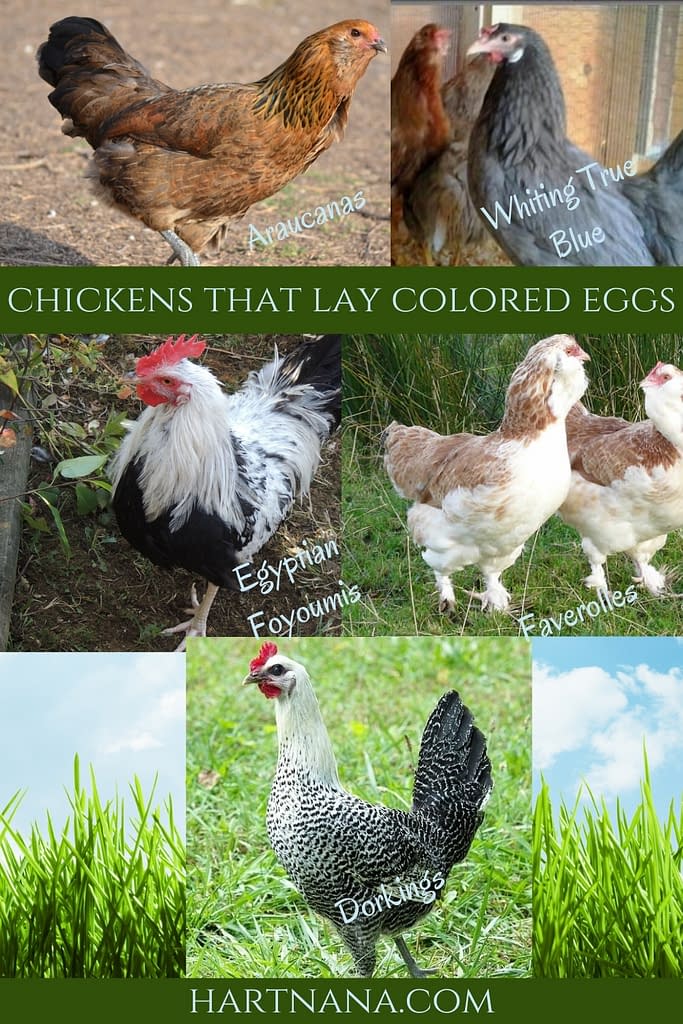
Araucanas/Ameraucanas – These lay the blue/green eggs in the basket pictured above.
Dorkings
Egyptian Foyoumis
Faverolles
Whiting True Blue
Beginners Guide to Raising Chickens Through the Winter
Keeping chickens through the winter and getting them to keep producing eggs can be a challenge. The things to remember are that chickens still need food, water, warmth and most importantly light.
A Word About Light
A light in your chicken coop in the winter will promote egg laying.
Don’t forget that if you live in really cold climates you need to be on top of collecting those eggs or they will freeze on you.
A Word About Heat
A heat lamp or two will usually provide the warmth necessary for most chickens to survive and if left on all the time during the darker months will promote egg laying. Where we live the temperatures drop down below zero on a regular basis (or so it seems this winter). My chickens do not have any heat source out there in the coop, which used to be the goat shed until we moved. They are doing fine. Though no eggs.
Half of my flock at the moment are Orpingtons which are known to be very hardy birds.
A Word About Food & Water
I also do not have water for them all the time because it keeps freezing. But there is snow on the ground, and I do go out and give them fresh water at least once a day. Making sure they have lots of food is essential during cold weather. If you think about birds in the wild, they don’t have a regular source of water other than snow, during the winter either.
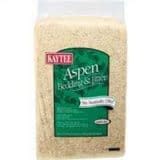
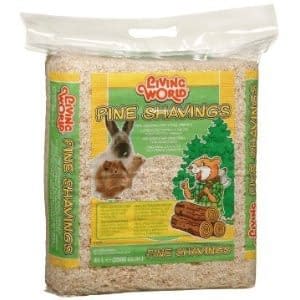
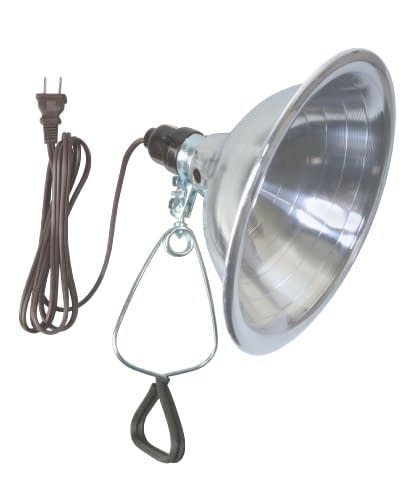
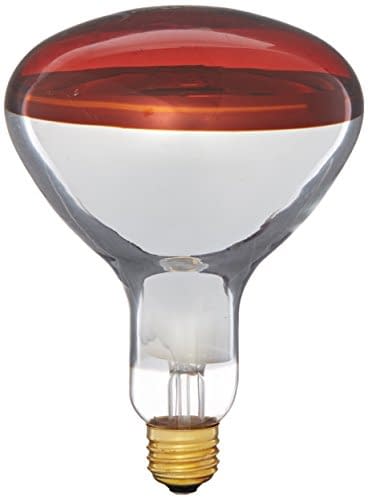
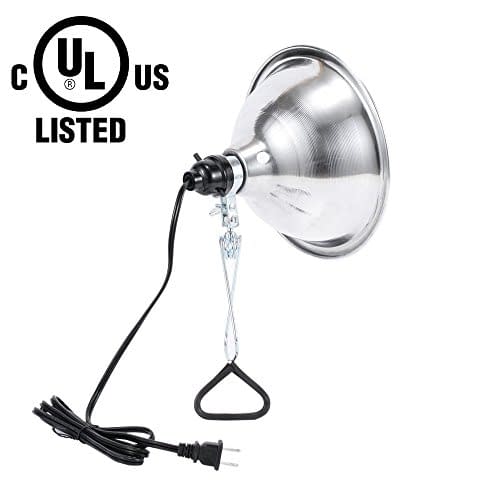
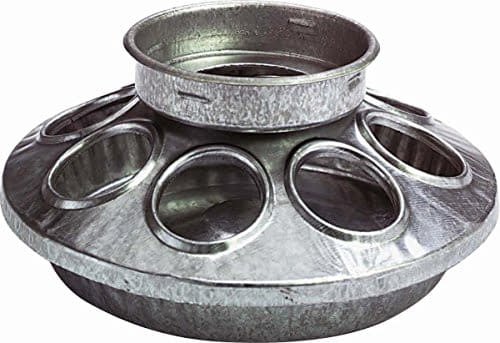

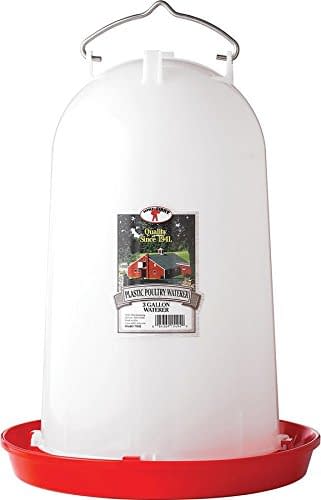
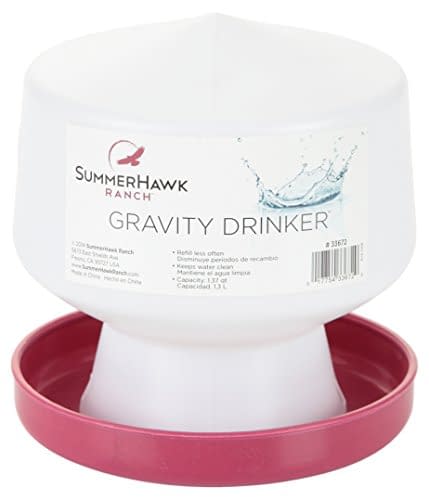
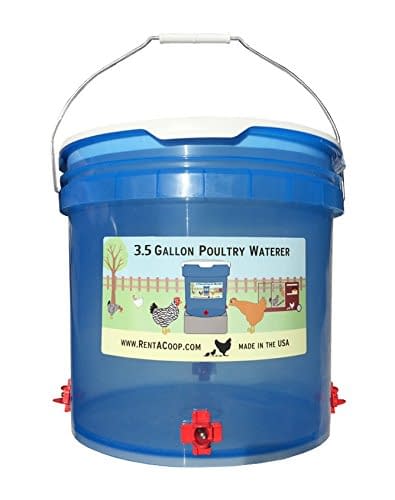
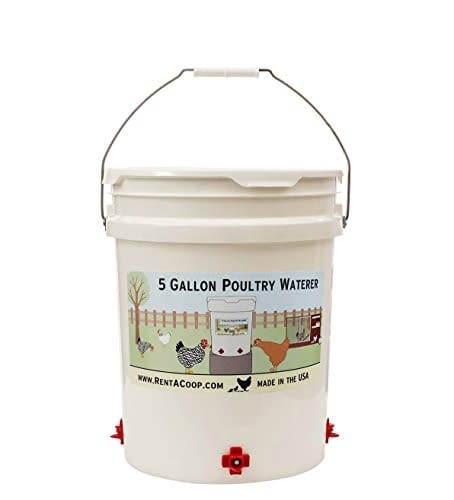

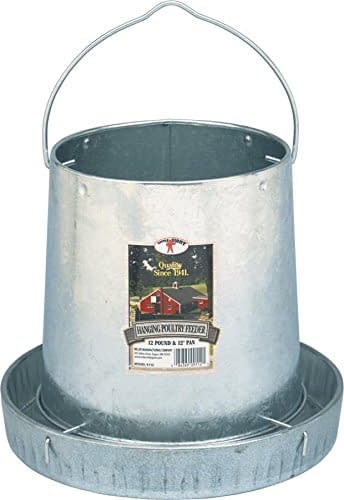
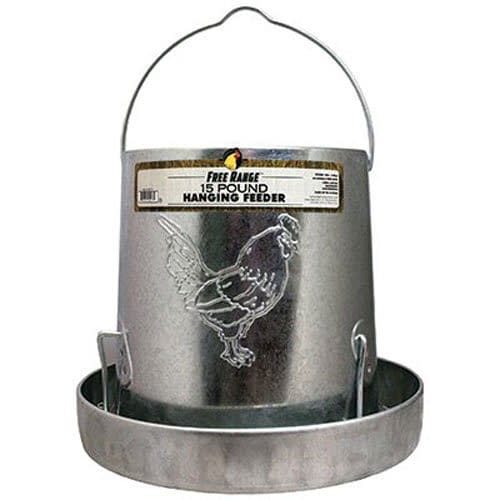
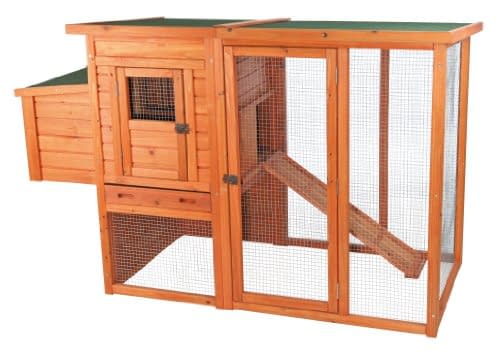
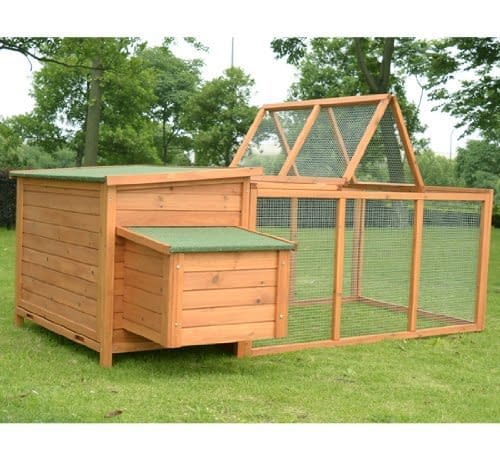
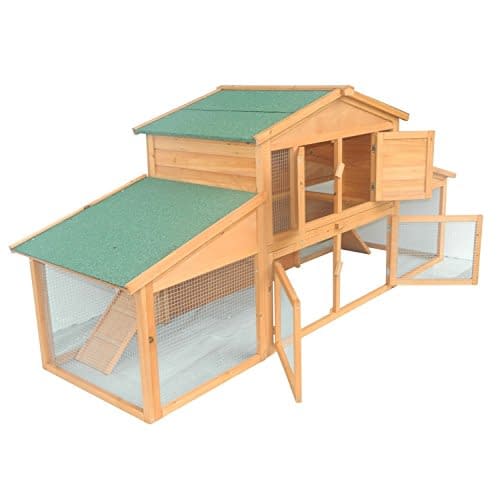
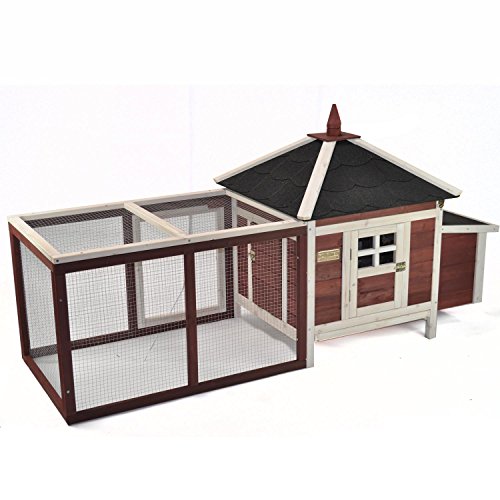
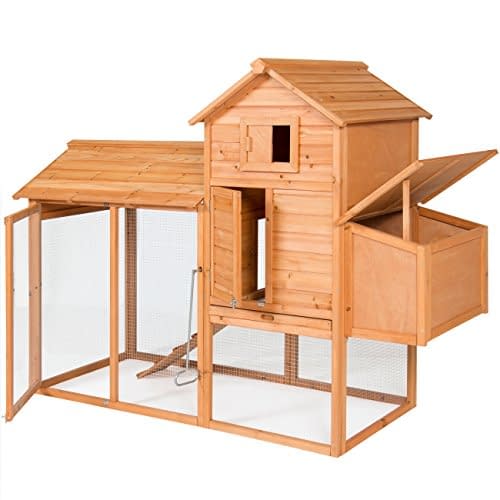
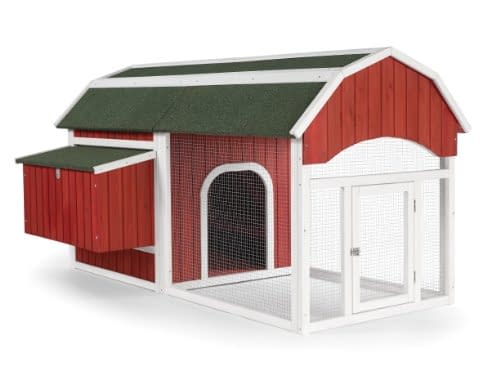

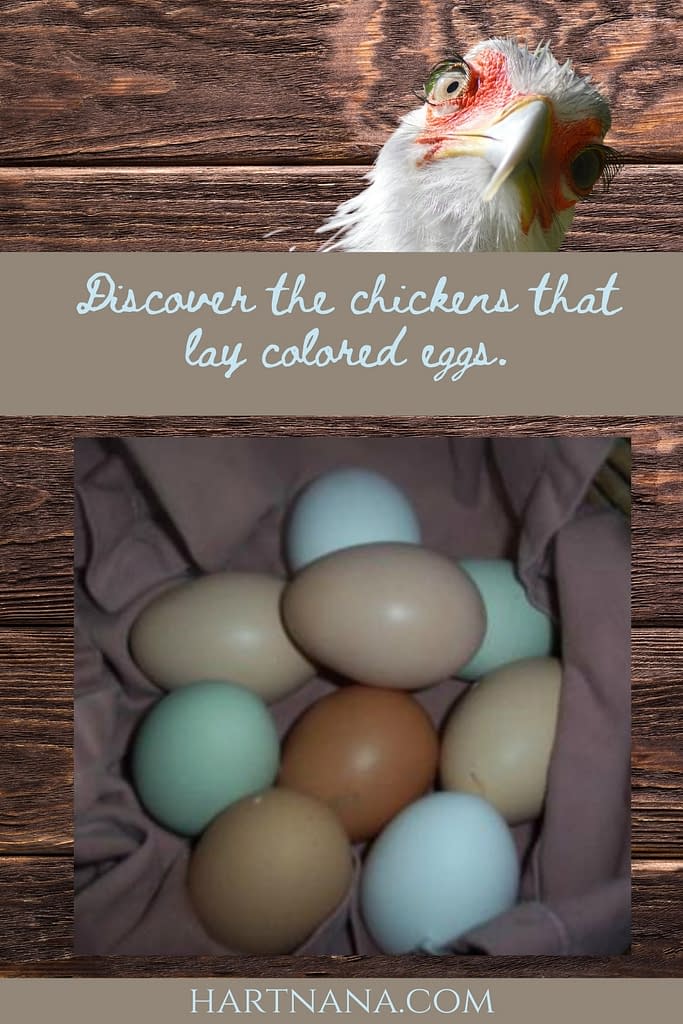

 Find this on Amazon:
Find this on Amazon: